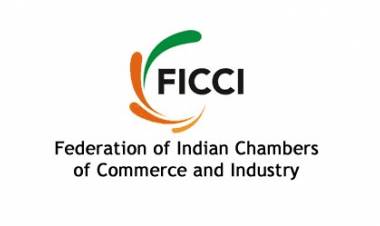NEW DELHI, 06 October 2021: Prakash Mirani, Joint Secretary and ACEO, Government e-Marketplace (GeM), said that with 7 lakh registered MSMEs, including 2 lakh women entrepreneurs, 31,000 SC/ ST entrepreneurs, more than 9,000 start-ups, 3,000 SHGs, 1.5 lakh weavers and around 27,000 artisans, the Government e-Marketplace (GeM) has evolved as a self-certified trust-based technology enabler and facilitator where authentication of users are done through API integration with respective domain database.
Addressing the FICCI Tech Thought Leadership Session on Frugal Procurement for ICT Services- Everything as a Service, Mirani said GeM is constantly engaging with stakeholders to make procurement processes contactless and faceless with accountability. “Public procurement on GeM has been growing at a rapid pace and it is expected to cross INR one lakh crores by end of this financial year. It is essential to devise new methods of procurement so that buyers can access new technologies quickly. We are engaging with MEITY to bring more cloud services to the GeM portal.
Further, Mirani said that frugal procurement in ICT services falls squarely within the priorities of driving efficiency along with cost savings. “For a government buyer, procurement of ICT products and services is a complex activity, and they struggle in preparing vendor-neutral bid documents. Sellers also suffer due to a lack of clarity. To help both buyers and sellers overcome such challenges, GeM has undertaken sensitisation of technical parameters and standard terms and conditions for both products and services that bring objectivity and clarity that further helps to create a level playing field between competitors,” he added.
Mirani further noted that cloud services are a very good example of ‘everything as a service, where instead of procuring hardware infrastructure and paying upfront for storage and computing, the buyer can pay less when the demand is low and ramp up when needed.
Speaking at the event, Ambrish Bakaya, Co-Chair, ICT and Mobile Manufacturing Committee, FICCI said that the FICCI ICT & Mobile Manufacturing Committee is committed to seeing new ways of looking at this larger digital space. “Innovative ideas like ‘everything as a service’ and consumption-based models is environmentally friendly, allow access to new technology and can take the country’s Digital India Mission forward in many ways.
During the session Vikram Kumar Yerram, Country Manager, Hewlett-Packard Enterprise gave an industry address and talked about HPE’s Green Lake Cloud Services and how cloud and infrastructure services can help a country, or an organisation, continue sailing with advanced technology solutions during these tough times.
Prof Vivek Kumar Singh, Head, Department of Computer Science, Banaras Hindu University, Varanasi, said that the concept of ‘everything as a service will change the environment and the ambience of universities and colleges, mainly because of whatever capital infrastructure that educational institutes create, maintainability is always a challenge. “Maintainability and assuring high availability are always a challenge given the kind of manpower that we have,” he said.
Ranganath Sadasiva, Chief Technology Officer, Hewlett Packard Enterprise noted that IT, which predominantly was in the fringe, is now becoming core to all kinds of businesses. “The silver lining of the pandemic was an acceleration of digital transformation and digital adoption. There is a sense of pace that we see across all organisations,” he said.
Prasanna Lohar, Head Technology – Innovation & Architecture, DCB Bank said that the organization drafted a strategy to create, engage, act, and transform at the bank level. “We have created a lot of platforms internally, like payment-enabling services, that were not available earlier. The creation of the much-needed backend systems and omnichannel architecture to serve multiple channels was the need of the hour. We are now looking at microservices-based architecture and service-oriented architecture,” he said.


